AMOEBOZOANS
1/7
There's no tags or description
Looks like no tags are added yet.
Name | Mastery | Learn | Test | Matching | Spaced |
|---|
No study sessions yet.
8 Terms
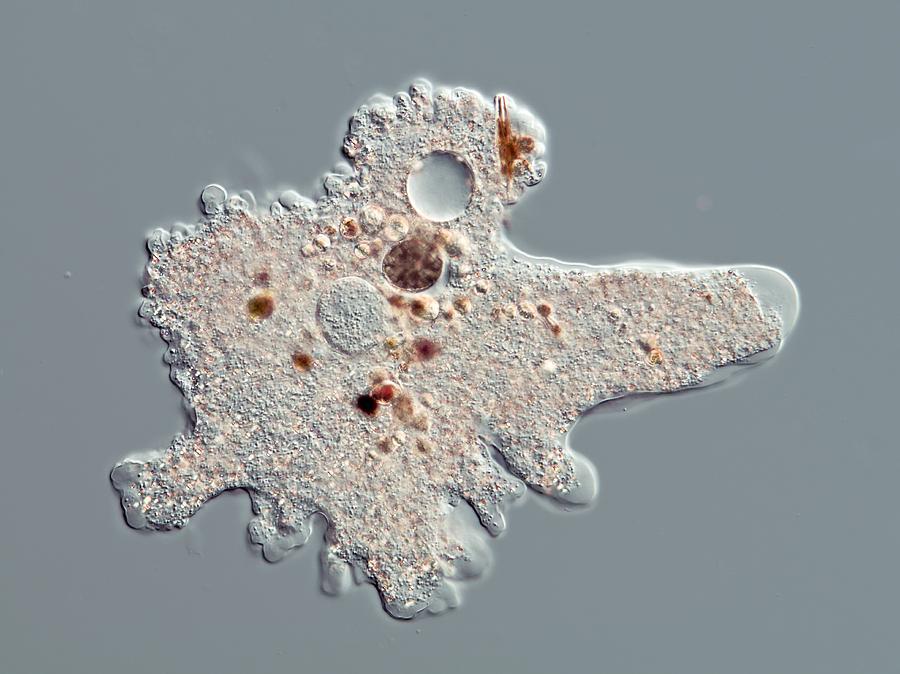
amoeba proteus- note shape of pseudopodia, cytoplasmic streaming, ectoplasm is clear, endoplasm is granular, contractile vacuole, uroid, explain movement, freshwater
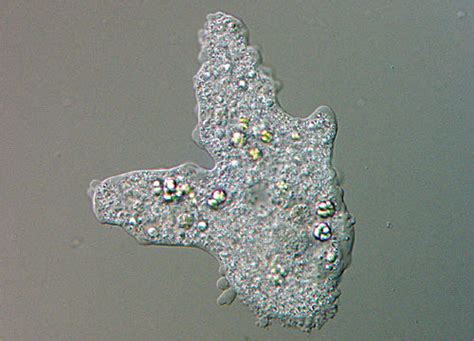
chaos carolinensis- very similar to A. proteus but is multinucleic, many nuclei with nucleoli. freshwater
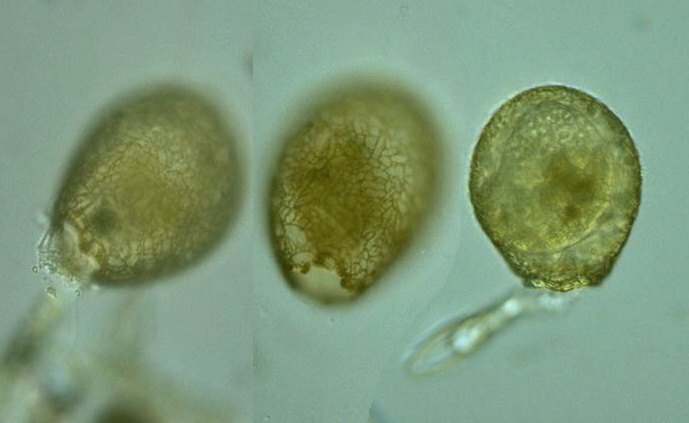
difflugia lobostoma- not pictured here but can have agglutinated sand grains of the theca, also sand grains in the cytoplasm, ovoid nucleus at the anterior (away from stress of aperture mechanical stress), pseudopodia and aperture at the posterior. freshwater
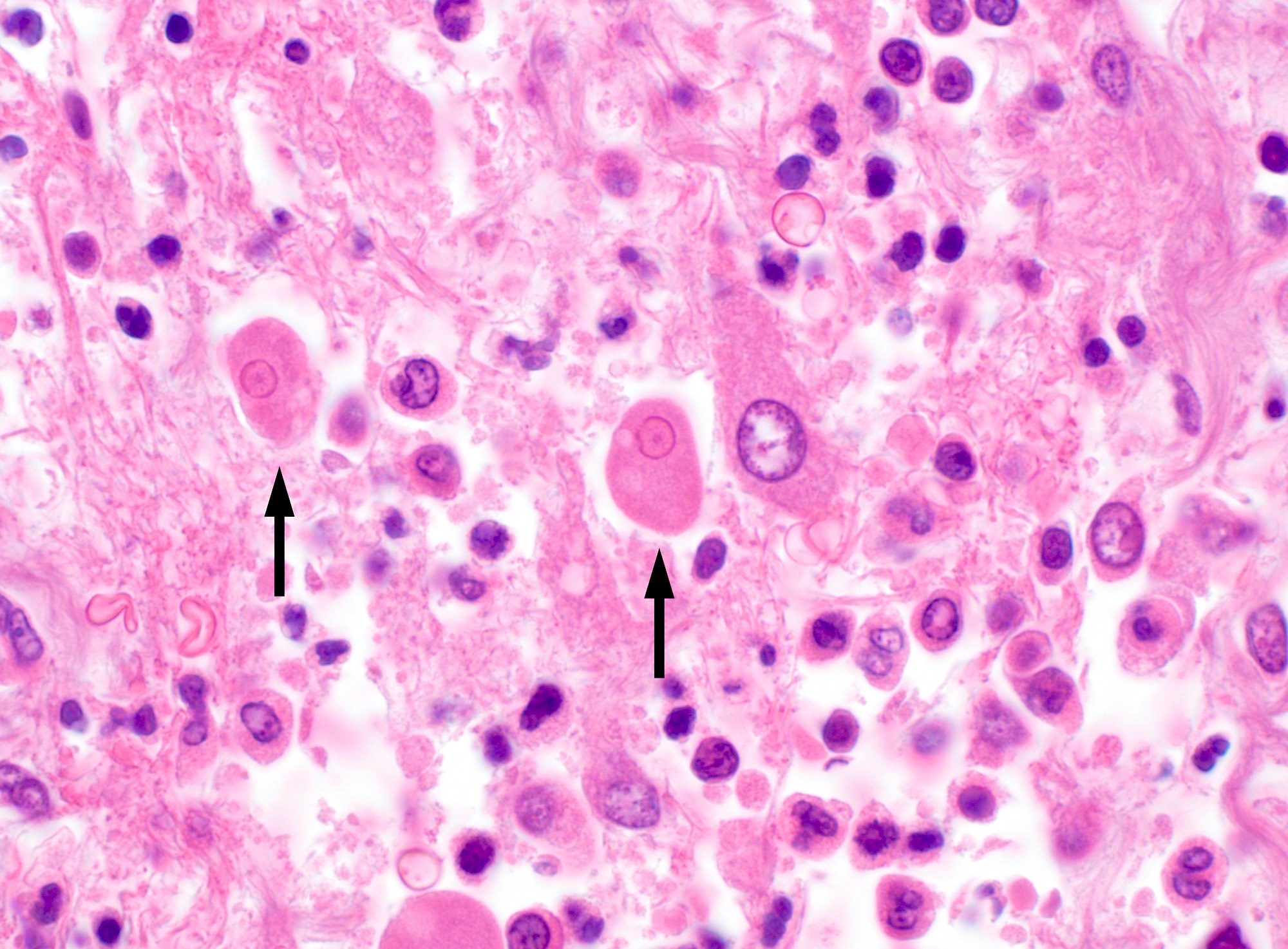
entamoeba histolytica- infected gut with ulcer (Depression in the gut epithelium cells), parasitic, creates lectins which bind to bacteria but sometimes they bind to gut and dump lysosomes, leads to dysentary,
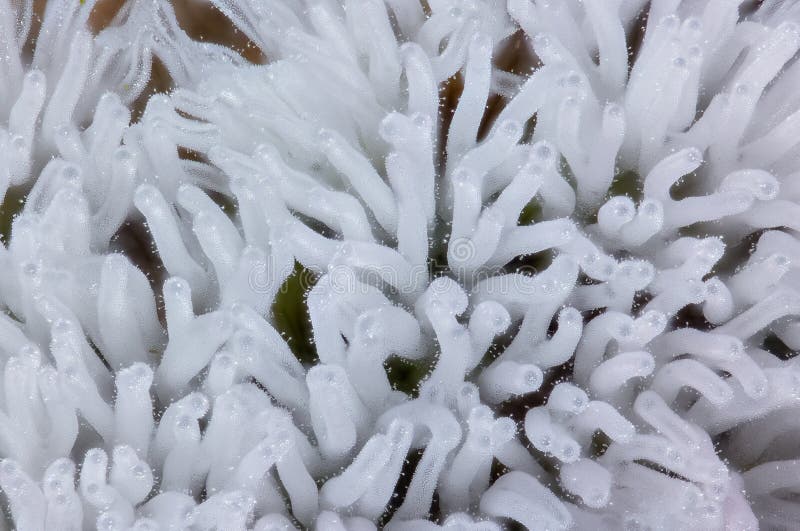
Ceratiomyxa fruticulosa- plasodial slime mold lacking peridium or capillitium, multinucleated amoeboid mass of protoplasm, spreads across wood then forms fuzzy fruiting bodies (sporandium)
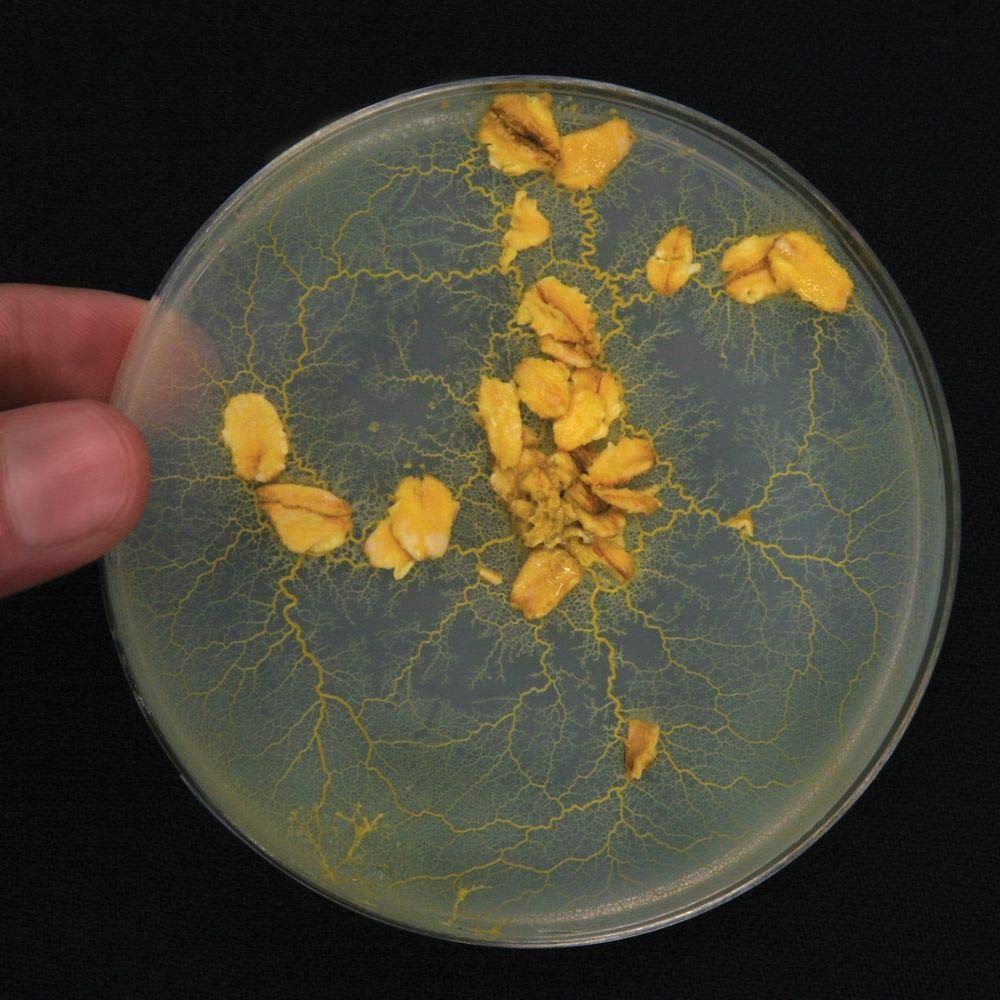
physarum polycephalum- cytoplasmic channels with a fan shaped pseudopodium at the leading edge, shuttle streaming of cytoplasm, slime sheath left behind migrating plasmodium, many nuclei in single cytoplasm unit
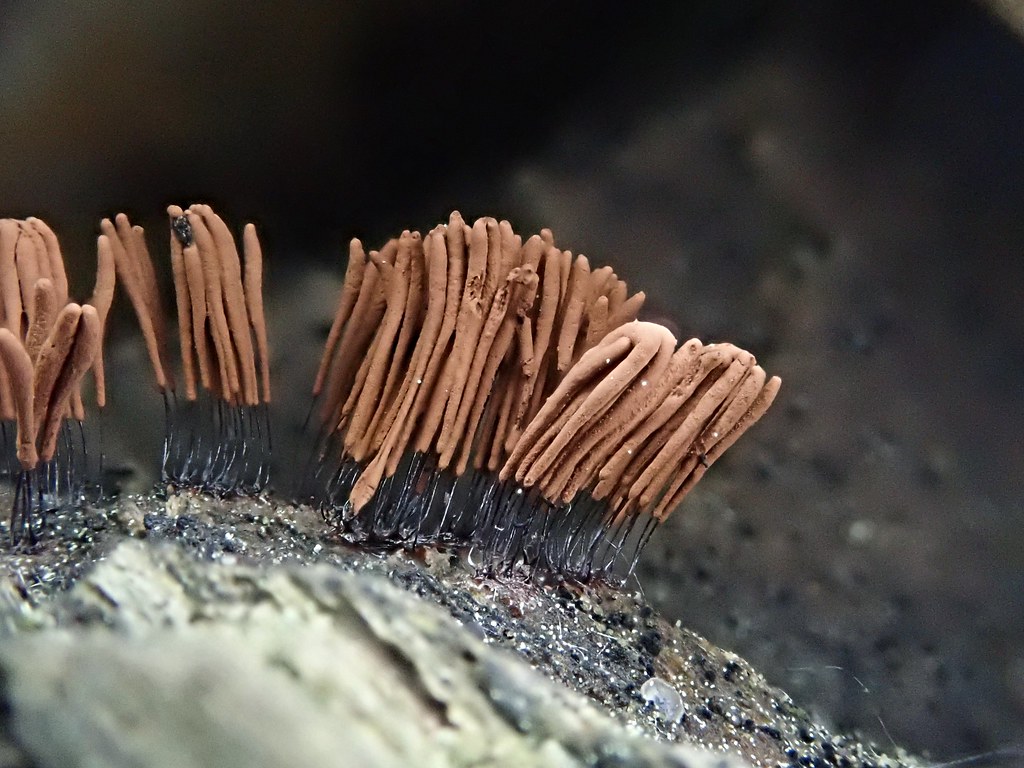
stemonitis spp. slime mold, capillium is net like structure connected to clumella with few stout branches
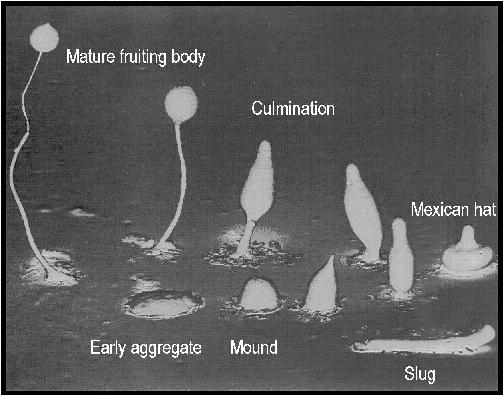
Dictyostelium discoideum- LOOKS LIKE HOT GLUE slime mold with ability to transition b/w uni and multicellular stages depending on conditions, mound is formed when food is scarce, not a life cycle its a behaviour, multicellular stalk with rounded sporangium at the top stalk is made of apostatized cells, vacuolated and elongated